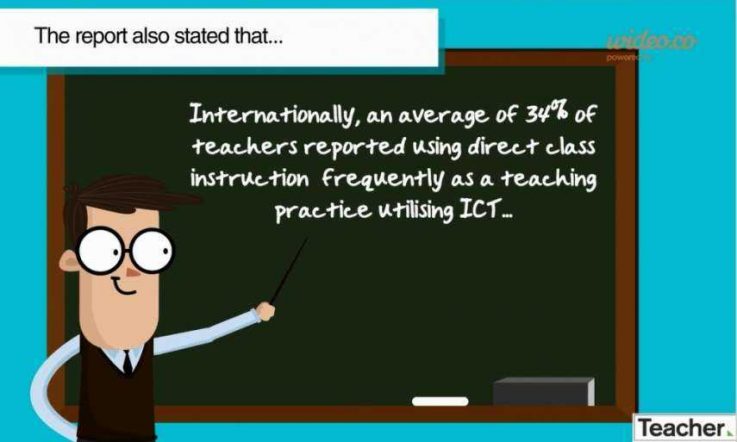Australian educators believe insufficient time to prepare for lessons and a lack of skills among teachers are hindering the use of ICT in teaching and learning activities.
ICT coordinators taking part in the pioneering International Computer and Information Literacy Study (ICILS) were asked to consider potential obstacles to ICT use in schools.
In Australia, teacher-related issues were highlighted as being more problematic than access to technology, such as not having enough software or devices for instruction.
ICILS - the world's first computer-based international study into computer and information literacy - gathered data from almost 60 000 students and 35 000 teachers, ICT coordinators and principals.
It shows 75 per cent of Australian students attended schools where ICT coordinators believed a lack of ICT skills among teachers hindered ICT teaching and learning 'a lot' or 'to some extent' (the average across ICILS countries was 63 per cent).
When asked to consider the issue of 'insufficient time for teachers to prepare for lessons', the figure was 67 per cent for Australia, compared to the ICILS average of 63 per cent.
Only 27 per cent of Australian students attended schools with a lack of sufficiently powerful computers (although that figure increased to 51 per cent in the Northern Territory), compared with 55 per cent of students at schools for all ICILS countries and 85 per cent of Turkish students’ schools.
And, only 10 per cent of Australian students' schools didn't have enough computer software, compared with the ICILS average of 47 per cent.
ICILS was coordinated internationally by the Australian Council for Educational Research (ACER) for the International Association for the Evaluation of Educational Achievement. It involved 21 countries, or education systems within countries.
ACER Research Director and director of ACER’s international study centre for ICILS, Julian Fraillon, says: '[The study] shows that teachers’ ICT use is greatest when they work in well-resourced schools that collaborate on and plan ICT use. Planning at the system and school level should focus on increasing teacher expertise and collaboration in ICT use.'
In terms of student skills, the study tested computer and information literacy among Year 8s, or an equivalent age. The top five performing countries were the Czech Republic, Australia, Poland, Norway (Year 9) and Korea.
To access the full ICILS national report, Australian students’ readiness for study, work and life in the digital age, click on the link.
Stay tuned: The next episode of Teacher's podcast series The Research Files, will focus on student data gathered by ICILS. To subscribe to our podcasts for free on iTunes, click on the button below.
What do you consider to be the greatest obstacles hindering ICT use for teaching and learning?
How is your school supporting staff professional learning when it comes to ICT skills?



